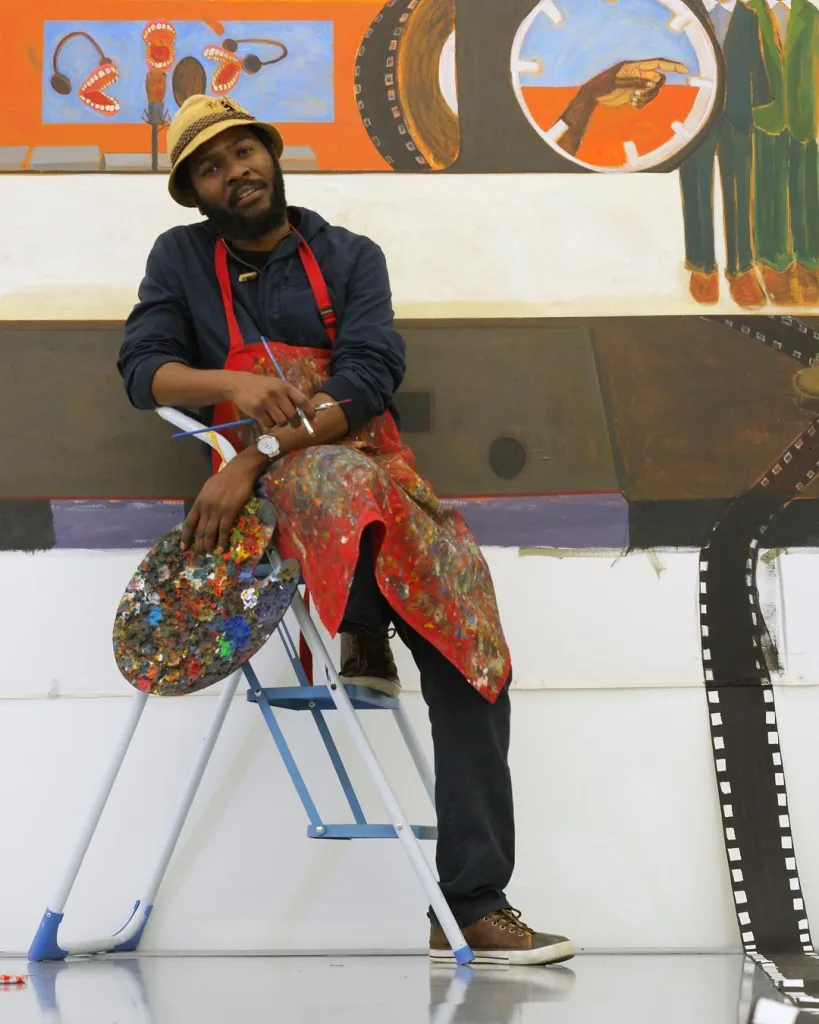Zimbabwean artist Richard Mudariki, known for his sharp political paintings and bold institutional critiques, was blocked from attending his own exhibition at Africa Basel after Swiss authorities denied his visa application. The irony? His show was about access, borders, and the global imbalance in artistic mobility.

Swiss authorities refused Mudariki’s Schengen visa last month, despite two formal invitations from Swiss cultural institutions, confirmed event bookings in Basel and Zurich, and a fully submitted travel dossier. The official reason: “unconvincing accommodation reservations” and “insufficient justification” for the trip.
For most artists, such a rejection would be a logistical setback. The incident struck at the core of the work Mudariki meant to present. His project, The Art World Passport, is a conceptual, limited-edition booklet designed to question who gets to move freely in the global art world—and who doesn’t. Visitors to Africa Basel could purchase the passport for 400 Swiss francs, then use it for entry into partner institutions across the city. The work is both playful and deeply critical, mimicking the privileges of citizenship in elite art circles.

I designed this work to draw attention to structural exclusion in the global art ecosystem,” Mudariki said in a video message played at the show’s opening. “Then I became the subject of it. My physical absence became part of the installation”.
Organizers included a framed copy of his visa refusal letter in the exhibition, alongside the passports and participatory installations. A planned provocation turned into reality, an unscripted but powerful commentary on the bureaucratic walls that often define artistic opportunity.
Across Europe, artists from African countries face some of the highest visa rejection rates in the world. According to EU data, rejection rates for Schengen visa applications from the continent hover around 30 percent, with little recourse or transparency. Critics argue that such barriers not only restrict travel but reinforce cultural gatekeeping and systemic imbalance in the art world.
Mudariki, who also runs the platform artHARARE, has long advocated for better representation and infrastructure for African artists. His exclusion from a platform like Basel has sparked conversation about the sincerity of efforts to include voices from the Global South in major international forums.
“This is more than a paperwork issue,” he said. “It’s about whose work gets seen, whose body is allowed to travel, and who gets to be part of the conversation.”
Despite the setback, The Art World Passport is proving impactful. Collectors, curators, and fairgoers have reportedly issued over 200 passports, stamping them and leaving their comments. The project will continue to evolve as it travels to other cities later this year, including a stop in Lagos, Nigeria and a planned digital edition.


